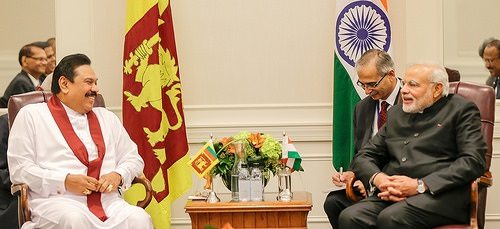
January 25, 2015; PBS NewsHour
Earlier this month, Secretary of State John Kerry was welcomed to the “Vibrant Gujarat” business summit. (Gujarat was the state led by Prime Minister Narendra Modi led before his election as the country’s leader.) Amongst other things discussed at the summit was one of Prime Minister Modi’s pet projects, smart cities. PBS profiled one of these developments in the former capital of Gujarat, Ahmedabad.
Business investors and India’s rapidly growing middle class applaud the growth of more sophisticated urban facilities and the other business-friendly policies of Modi’s right-leaning coalition government. On the other hand, such developments come at a cost. Before the broad walkways and high-rise apartments were built along Ahmedabad’s riverfront, various communities lived there in riverside slums. PBS interviewed some of those were abruptly displaced and given tiny plots of land but nothing more to restart their lives.
“We are just day laborers,” one says. The city where they work is now at least an hour’s bus ride away, others say. Bus fares now take half of their meager earnings of around three dollars a day.
Sign up for our free newsletters
Subscribe to NPQ's newsletters to have our top stories delivered directly to your inbox.
By signing up, you agree to our privacy policy and terms of use, and to receive messages from NPQ and our partners.
“We’re right by a garbage dump, and when it rains, this place floods and the water brings it all in,” complains another person interviewed.
Social activist Shabnam Hashini says, “Modi is a very good showman. He knows how to project things. But that is about all.” She adds, “[The Modi] model cared [not] a damn about the poor, about the marginalized sections, and it is going to be the same all over India.”
Hashimi is one of the founders of ANHAD (Act Now for Harmony and Democracy), originally established as a response to the 2002 Gujarat riots. The Gujarat riots saw thousands of Muslims slaughtered by mainly Hindu rioters when Modi was leader of Gujarat. Official enquiries subsequently exonerated Modi from any direct or indirect culpability for the atrocity. Nonetheless, Muslims like Hashini express lingering doubts. Their fears are fuelled by the fact that some of Modi’s coalition party allies directly encourage Hindu nationalism, calling for Hinduism to be officially recognized as India’s national religion and for India to be declared a Hindu nation. The most extremist have been calling for mandatory religious conversion.
Such concerns are countered by M.J. Akbar, a spokesman for Modi’s Bharatiya Janata (BJP) party, himself a Muslim. He quotes the prime minister, who had said, on public TV, “I want to see Muslims in India with the Quran in one hand, but with the computer in the other hand.”
Life in India is full of such divisions and contradictions. It is, as is often said, the world’s most populous democracy, so discussion and dissent are to be expected. However, the last word belongs to the displaced Ahmedabadi day workers. When asked by PBS whom they voted for in the last election they said, “No one. We lost our election cards when they took our homes away, and we don’t have proper addresses, which are required to get new ones.”—John Godfrey













